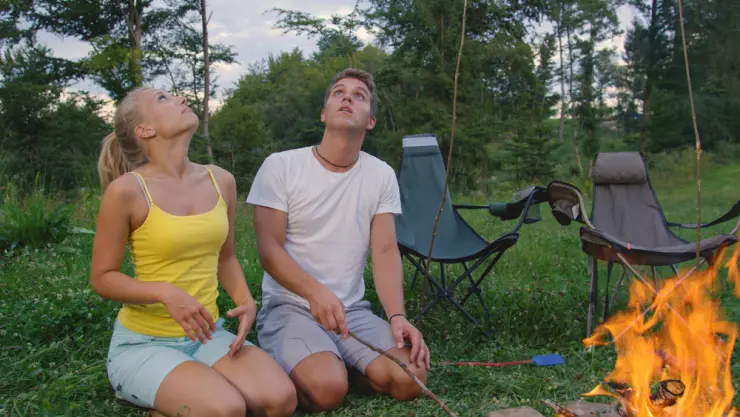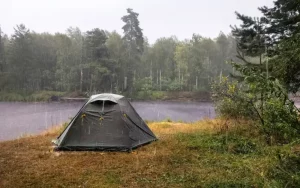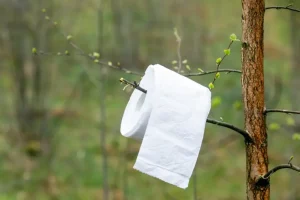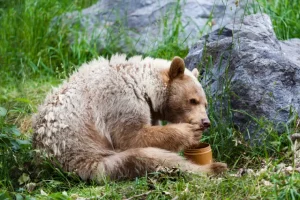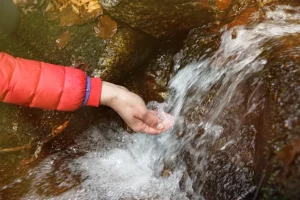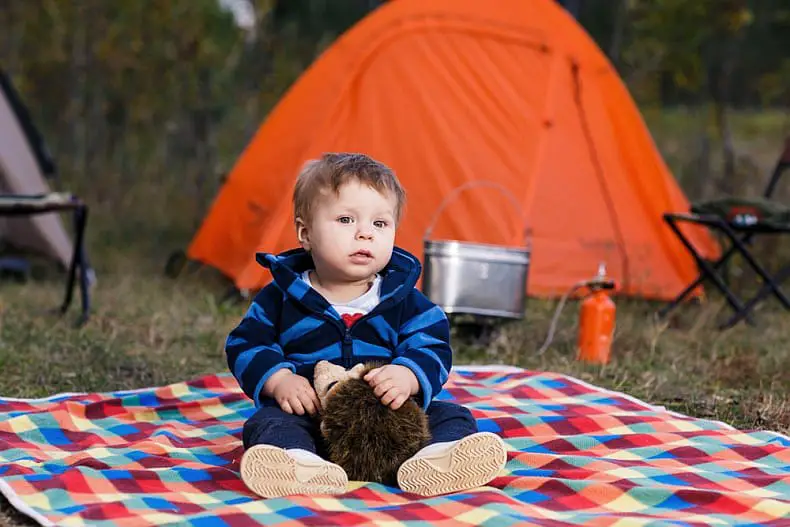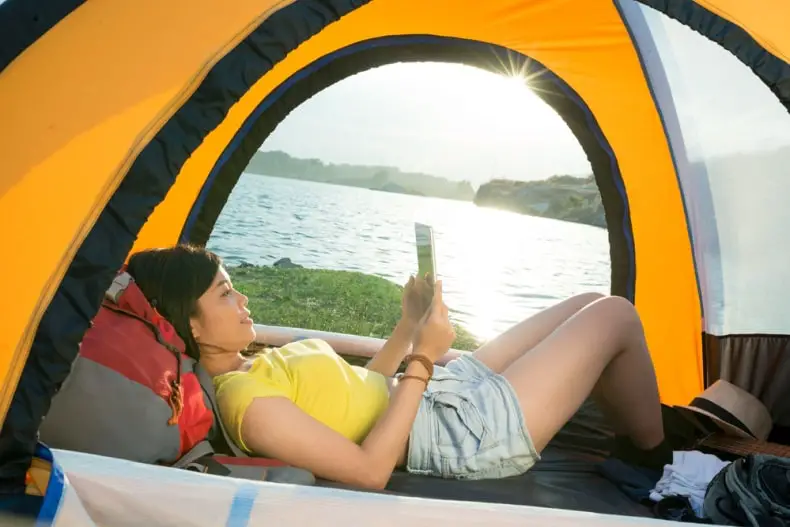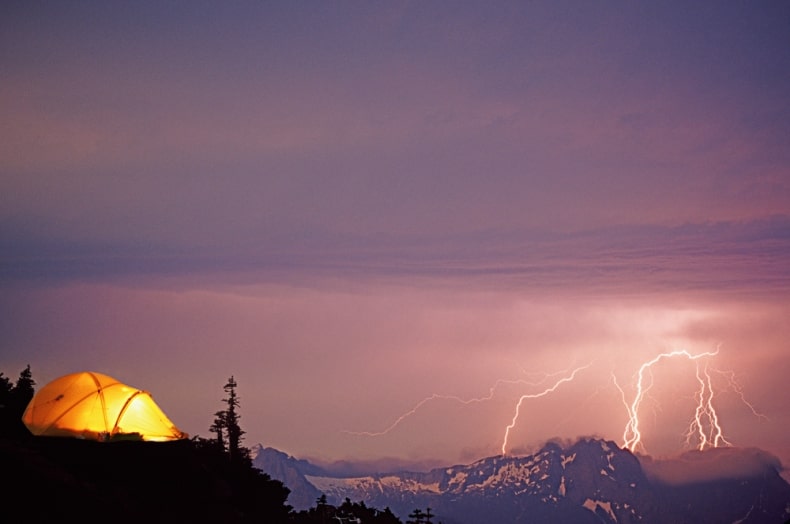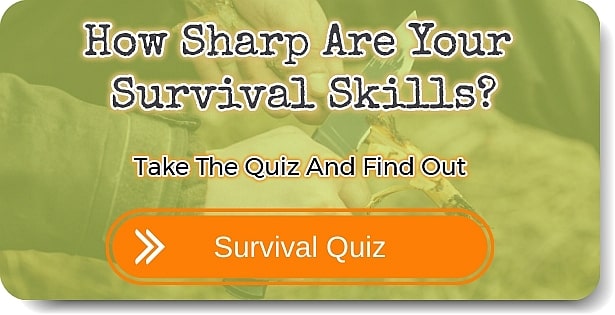Camping can be a lot of fun for people. However, there are some camping mistakes that we’d recommend that you avoid. Some of them are pretty obvious while others might not be. At the end of the day, you must be sure you avoid them if you are going to have a good time. In some cases, you need to do so to avoid getting hurt too.
In this article, we count down ten camping mistakes that one should avoid on a camping trip. We recommend that you pay close attention to not only the issue itself but WHY we are saying it is a bad idea. Of course, knowing why, you might understand and be more open to avoiding these mistakes. Let’s get started!
Table of Contents
10.) Not Knowing The Weather Before Leaving
If you do not pay attention to the weather forecast before you go camping, you’re a special kind of stupid in our book. It should be obvious that you need to know what the weather will be like. If nothing more, to know how to dress and the type of clothes you should take to change into. A big mistake is not bringing warm clothes when needed. Yet this is also important to know due to your tent.
Most tents are able to work in the Spring & Summer periods all over the world. Yet there are some that can withstand heat better. However, there is such a thing as a 4-Season Tent. It is the type of tent that will be fine all year long and do well in the temperatures you will come across.
Yet there are others that are 3-season tents and won’t do well in things like Winter weather. As a result, you could be miserable trying to stay warm. Some tents are able to stand up well to rain, wind, and other weather problems. Other tents will be torn to shreds or blown away. Thus. knowing the weather is key. It can literally be a life or death thing to know.
9.) Bringing Camping Gear You Do Not Know How To Use
This is a common issue that a lot of newer or novice campers go through.
Obviously, your camping list may include things such as a sleeping bag and sleeping pad, a backpack for hiking, a first aid kit, headlamp, bug spray – all typical camping items.
But you might be convinced by commercials or even salespeople at an outdoor store to buy something out of the ordinary. Of course, now that you have it, you need to use it, right? The problem is that you likely do not know how to use it, and you might not even need the item at all.
Let’s take a Lifestraw for example. It can be useful, but most are not going to do much for you. In fact, just drinking water from the environment is not always great. These straws do not help all that much. You might not even be sure how they’re supposed to work and it’s all a guessing game.
This situation could become a huge issue. Plus, even larger items that are not very helpful to you might be even dumber. Yet the most common thing we see here is an expensive tent. You do not always need something expensive and fancy. They are also sometimes difficult to put together, so this could become a big problem for a novice camper for sure.
8.) Not Knowing About The Plants Present, Then Using Them Anyway
We cannot tell you how many times this issue has come up. Some people want to pretend as if they know about the plants in their area. It is possible they have a working knowledge about what one might come across. However, knowing what is present does not mean you know if it is safe to eat or even to touch.
While poison ivy is a common threat, the most common issue is eating the wrong things. The two things people mess up on are almost always berries or mushrooms. It is usually an unwritten rule to leave wild mushrooms alone, simply as a precaution alone. There is a difference with berries because there are many that are edible.
However, you need to just know when they are safe to eat as they need to be ripe first. Yet there are other berries that are rarely okay to eat. While color can play a role in this, that is not always the case. This is why it is good to know the plants you’ll most likely see. The smartest thing for novices to do is to take a plant book with you, just to be sure.
7.) Taking The Wrong Types Of Food
While some are so ignorant that they do not take any food, others have the opposite problem. In some cases, people have brought foods that should obviously not be out there. Things like eggs, other dairy products, etc. If it is perishable, most of the time it needs to be left at home.
If it needs to be frozen or stay cool the whole time, this is not easy to do outdoors. Most coolers are only able to keep food cool for 24 to 48 hours. Of course, this differs for some more expensive versions. Clearly, those foods need to be left behind. The same can be said for most “heavy” food products too.
The best thing one can do is take lighter food products. Particularly those that do not spoil easily, and come sealed. This is why things like jerky, chips, and canned food is a common thing to see at campsites. Normal meat can be fine at times, so long as your camping trip is brief and it’s used soon into the adventure.
6.) Using Restroom Close To Camp
This is simply a common courtesy situation. It is always best to go to the restroom, regardless of it being #1 or #2, at least 20 to 30 feet from the campsite. Why so far? To animals, it is all about scent. They can smell or see us long before we smell or see them. When you go to the restroom, they might smell that and become curious.
Therefore, they might come close to the campsite to see what it is. That could, in theory, cause them to come across we humans when we do not want them to. When you go further out, you ensure they won’t get too close if they get really curious. On top of this, the wind can pick up and cause a certain “smell” to come right at the campsite.
The further away you did your business, the less likely you’ll be affected by the stuff. Of course, the best thing to do is to dig a hole and bury any #2 that you happen to do. This will also help to cut down potential smell issues. Plus, it acts a lot like fertilizer. Thus, you’re actually helping the environment a bit when you bury it too.
5.) The Wrong Drinking Containers
Many people bring beer to the outdoors with them while camping. While we do not recommend this, it isn’t uncommon. However, some make the mistake of bringing beer bottles with them over beer cans. Obviously, you need to take everything you brought back with you. Bottles or Cans, it needs to go back.
Beer bottles tend to be made out of glass, and they are relatively thick. Bottles can be kind of heavy as a result so you will often weigh yourself down by taking them in or out. Funny enough, the beer itself does not add much weight to the bottles. The bottles are the heaviest thing, so many are not motivated to take them back and leave them behind.
This is a big no-no. If you do take them, it’s heavy. Take cans, they are much lighter. The only time to take bottles is when they are plastic, like water bottles. They are very light. However, you can actually completely burn them in campfires too. That’s, of course, if you do not want to take them back with you.
4.) Not Using Properly Sealed Containers Or Coolers
Many new or novice campers often take a normal cooler and even regular containers they might use for food at home. While many of these might be okay, several others are not. Why does this matter at all? It comes down to smell. Obviously, you do not want to bring items with a strong smell but pretty much anything you cook will likely have some sort of smell to it.
While we may not recognize it, the animals sure have. They smell this stuff potentially miles away. Properly sealed coolers and containers will prevent the smell from getting out and cutting off the scent from the animals. This is key while camping.
You do not want curious animals coming in to raid your campsite. They are not there for you, but they can possibly attack humans in cases like these due to feeling threatened. Therefore, if you want to avoid the problem of animals raiding your campsite for food, bring properly sealed coolers or containers. It can be a life or death thing.
3.) Relying On A Fire With Matches
Matches can be useful for starting fires, yet the use of each one is special. The moment you run out, it will be harder to get a fire going unless you maintain the fires you make well. Stretching them out is best but not always possible. Plus, many can go out in the rain or in the wind. This can suck, especially when you need fire the most.
A fire can be crucial as it allows you to cook things, remove potential pathogens, and obviously helps us stay warm in the cold. This is why many might want to bring a few new lighters with them. While lighters are more helpful than matches with fewer problems, they too have a limit on how long they’ll work.
For your typical camping trip, lighters will work just fine. For something long-term? You could look into using a Ferro Rod or Ferrocerium as well as carbon steel. You pretty much use your knife to get sparks with them and that can help you create a fire. They are also likely to not cause any problems for you long-term either.
2.) Drinking Water From Stream, River, Or Lake
While this should be obvious, there are many people that do this annually. Thus, we have to tell you not to do it as this is a big camping mistake. If enough people didn’t, then we would not need to do so. Why should you avoid drinking water from a random stream, river, or lake?
Pathogens and bacteria! Think about it. Animals have been known to use the restroom right near the water and even die inside it. There is a difference to this at times. If you’re in an arctic area or a mountain where water comes mostly from melted ice. As long as it’s freshwater, this water likely did not run into any major issues with nature or animals.
Even then, though safer to drink than in other situations, it is best to boil any water you collect first. This will kill most immediately deadly issues, such as Cholera. But it won’t get rid of all bacteria. Only purifying will do that. Therefore, you’re better off taking bottled water on your camping or hiking adventures.
1.) Picking A Terrible Campsite
Time and time again, novice campers end up picking terrible places to camp. On campgrounds, most places are going to be okay. They are checked for issues regularly, so most people will be alright. Meanwhile, those who are just camping in the middle of the woods or a random place in nature will need to be careful about where they do this.
For example, there could be active, dangerous animals in some places you’ll want to avoid. In some instances, people will camp too close to or inside a cave. This is a common area bears use. Yet snakes, spiders, and insects call them home quite often too. You’ll want to be careful about where you lay your head at night for sure.
There might be rockslides or flooding in some locations, possibly even avalanche issues. It is obvious you’ll want to avoid these issues too. Know the area you are going to be in, and we’d even recommend speaking to a local guide or park ranger to see where they’d recommend. Even experienced campers can benefit from this.

